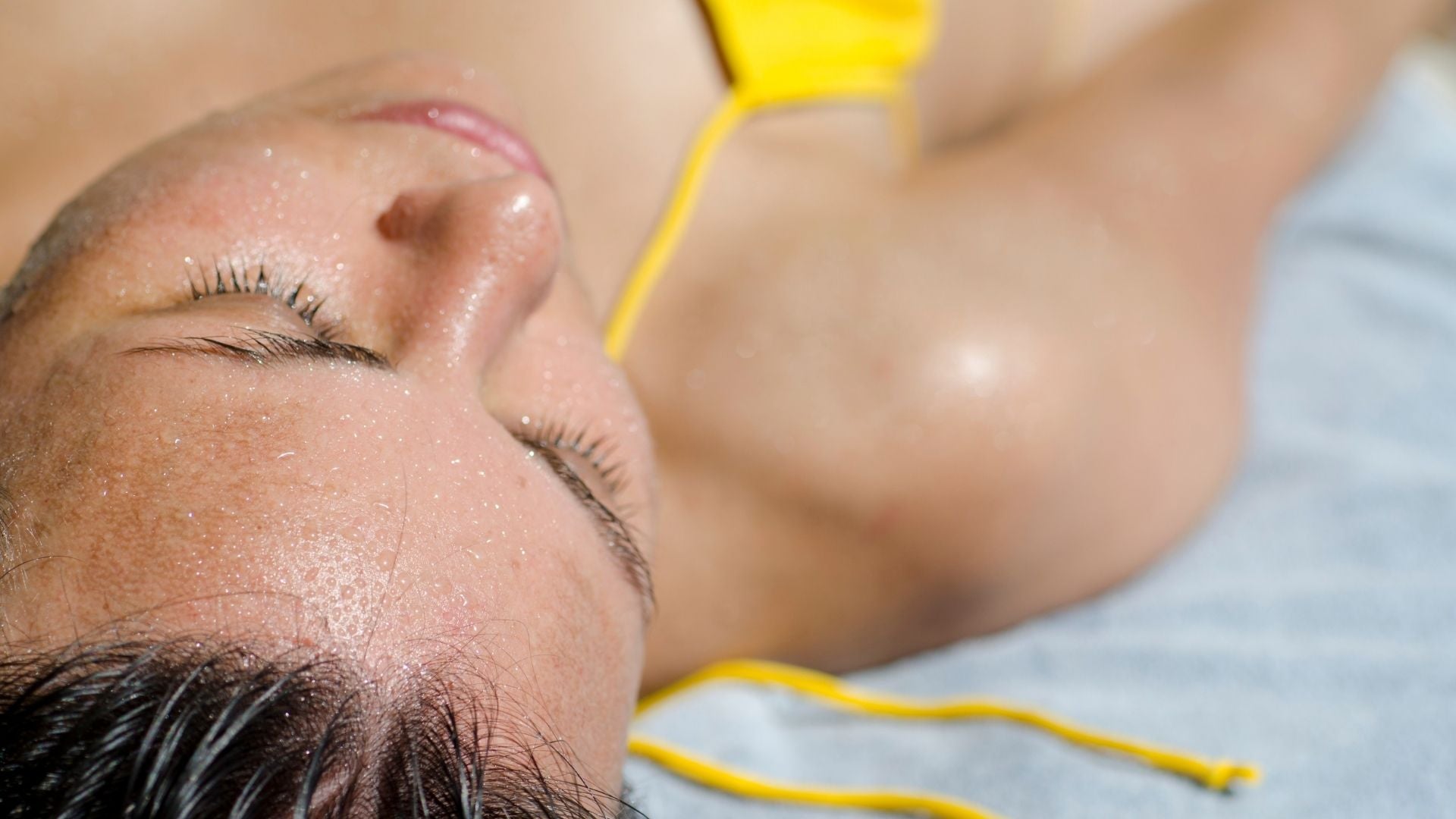
Our bodies may be made up of 70% water, but that doesn’t mean we can’t suffer from skin dehydration.
People are commonly under the misconception that it’s only something to be vigilant about in summer or on extremely hot days, but dehydration can affect you at any time. Every day, we lose water through regular activities, no matter what the temperature is, so it’s important to be on top of changes in your skin and general health.
Luckily, dehydrated skin can be easily treated if caught in the early stages and can be relieved with a combination of topical treatments and lifestyle tips and tricks…
Dehydrated vs. Dry
Often used interchangeably, there is actually a difference between dry skin and dehydrated skin. While dehydrated skin lacks water, dry skin lacks natural oils (aka sebum) and is considered a skin type rather than a skin condition – so even oily or combination skin types can become dehydrated!
Much like some skin sensitivities, dehydration can be caused by a range of external elements like the weather and seasonal changes, as well as an unhealthy diet and poor product or lifestyle choices. Coming into contact with heavily chlorinated or chemically-treated water can ruin your skin’s texture and ability to bounce back, whilst harsh and potent household products that contain chemicals can strip the skin of moisture too.
All of these factors deplete your skin’s water content, resulting in a less supple and healthy appearance.
6 Signs Your Skin Is Dehydrated
The layers of your skin need moisture. Without it, skin can’t stretch or protect you as well as it should, so be alert or not alarmed if you’ve noticed one or more of the following signs and symptoms:
- Itching
- Not sweating / sweating too much
- Sunken eyes
- Dullness
- Dark skin / shadows around the face (especially under the eyes and around your nose)
- Fine lines and wrinkles
To be sure, you can do a simple pinch test to determine your skin’s hydration levels.
Pinch and lift the loose skin on the back of your hand with your thumb and index finger. Then let go. Does the skin fall back into place straight away? If not, you might be dehydrated, or more specifically, be suffering from a condition called skin turgor.
Severe dehydration can go beyond your skin too and cause symptoms such as headaches, dizziness, a dry mouth, feeling confused, faint or light-headed, overall weakness and fatigue, muscle cramps, constipation, increased heart rate and breathing, and urination that is darker and less frequent.
Dehydration can become a medical emergency in some cases, so be sure to see your doctor immediately if symptoms persist.

6 Simple Solutions for Dehydrated Skin
Fortunately, it doesn’t take much to rehydrate. Skin hydration can be improved with a combination of common sense, products, diet and lifestyle improvements.
1. Drink more water and less caffeine / alcohol
It’s a small piece of advice with big benefits. We need water for digestion and absorption, to move freely, get rid of waste and regulate our core body temperature. To get the best results, all fluids should be sipped slowly. Consuming too much caffeine (such as coffee and energy drinks) can lead to an increased heart rate and higher levels of anxiety. Wines and hard liquors like gin, vodka, whiskey and rum can have a dehydrating effect because of their high alcohol content. Like most things, it’s OK in moderation.
2. Wear sunscreen when outdoors
As mentioned, dehydrated skin can be triggered by extreme weather or sun exposure. By applying sunscreen diligently and keeping sun safe all year round, you will reduce your chances or developing sunburn or windburn. Stay in the shade when you can and use a sunscreen that is suitable for sensitive skin (aka it contains zinc).
3. Use nourishing skincare products
Moisturising is a must! Make sure you’re using a good quality, daily moisturiser to have your skin looking smooth and glowing again. Exfoliating once a week will prevent the build-up of dead skin cells which can stop your skin from absorbing moisture. Use products that contain aloe vera (like our Hydrate Recovery Gel) glycerin, ceramide, coconut oil (like our zinc sticks) and sunflower seed oil. Cut back on products that contain high levels of retinol, acids and vitamin C.
4. Invest in good indoor air quality
Placing a humidifier in the room you spend the most time in (such as the bedroom, living room or office) is a great idea. It’ll add moisture to the air and reduce the occurrence and appearance of parched skin, and it will also better protect you against airborne diseases and viruses such as COVID-19. Avoid open fires and close or prolonged proximity to heaters and air conditioners
5. Eat foods with a high water content
If you struggle to drink water, ingesting more plant-based and antioxidant rich foods is the next best thing to keep you hydrated inside and out. High water content vegetables include cucumber, carrot, avocado, sweet potato, broccoli, tomato, celery, lettuce, zucchini and legumes. Fruits include oranges, watermelon, pineapple and grapefruit, as well as stone fruits like mangoes and peaches. Add honey, coconut water and lemon water to your diet where you can too.
6. Remember to rest and replenish fluids
One of the best things you can do to avoid dehydration is to give your body time to recuperate. Regular exercise is recommended, but you need to adequately rest and replenish fluids afterwards, especially after strenuous activity. Get plenty of sleep at night or during an illness, and replace hot showers with ones that are cold or lukewarm at best.


Comments (0)
Back to Blog